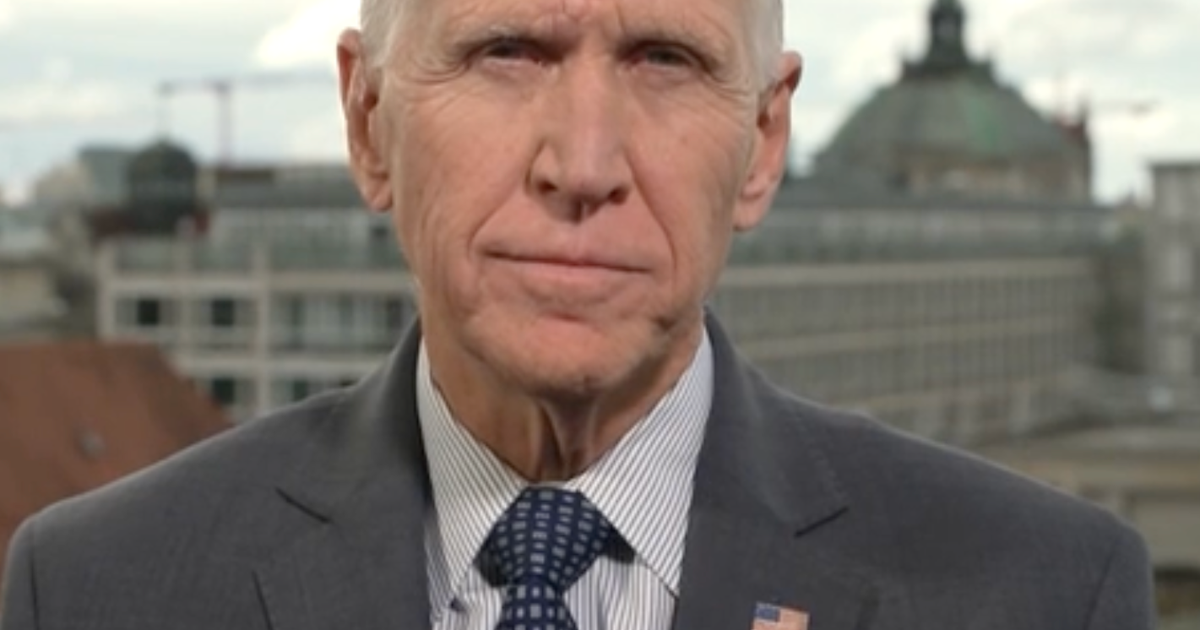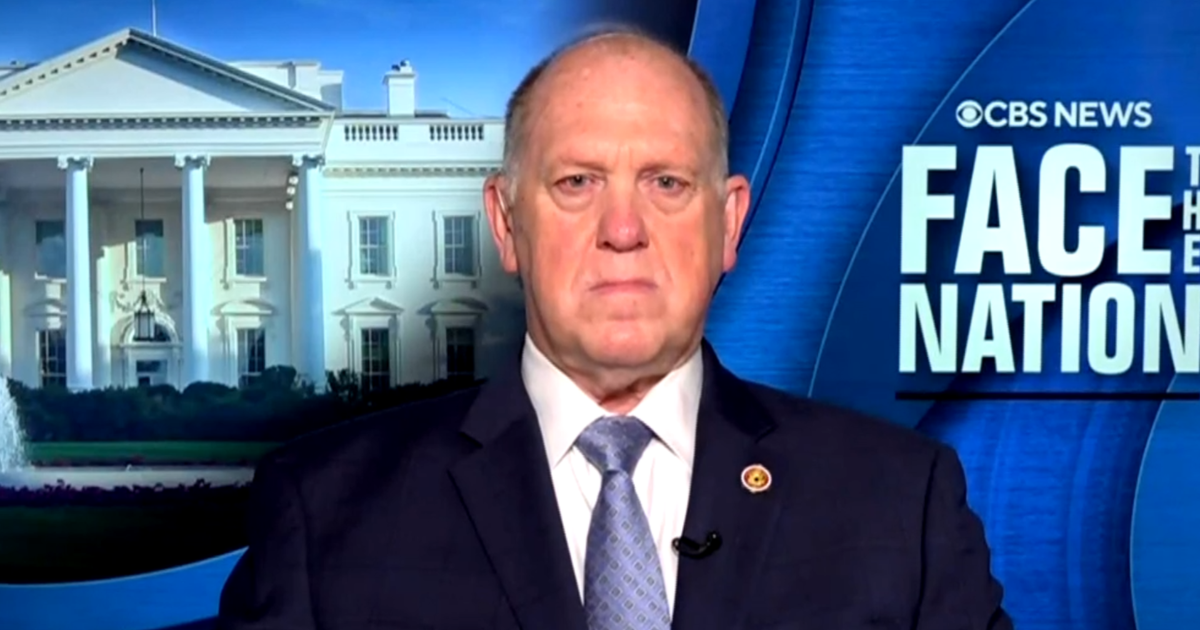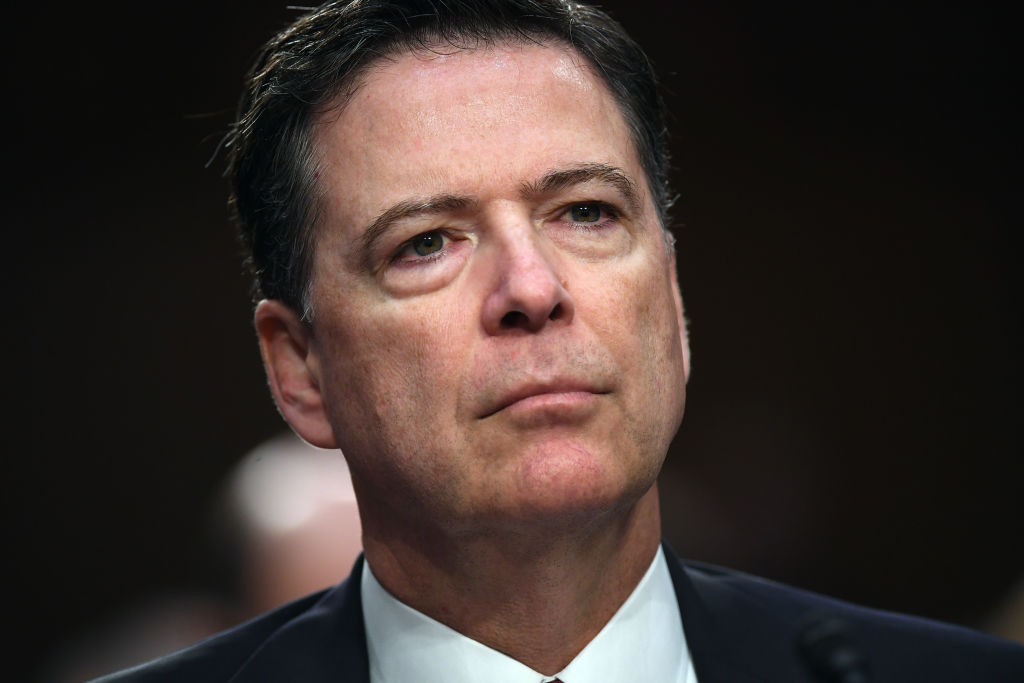Transcript: Sen. Chris Coons on "Face the Nation," February 17, 2019
The following is a transcript of the interview with Democratic Sen. Chris Coons that aired Sunday, Feb. 17, 2019, on "Face the Nation."
MARGARET BRENNAN: We want to turn now to another attendee at the Munich Security Conference, Delaware Democrat Chris Coons. You now have heard the former acting FBI director come public after leaving office about what he saw as grounds for discussion of the 25th Amendment. What do you think of making those details public now?
SENATOR CHRIS COONS: Well Margaret as you heard from Senator Graham this will almost certainly be taken up by the Senate Judiciary Committee. But what's striking to me about this conference-- and frankly around the world is the way in which President Trump's abrupt decision to withdraw from Syria has really unsettled our core allies because he did so without consulting with any of our allies. A candidate Donald Trump ran as someone who would be unconventional, who would break the mold and be unpredictable, and he has certainly over performed in that category. But what is striking to me about the "60 Minutes" reporting about the conversations that are alleged to have happened at the highest levels of our law enforcement community is that folks who were career professionals were troubled enough by what they saw in terms of President Trump's actions with regard to Russia, that they felt compelled to open a counterintelligence investigation. I think that should give all of us pause.
MARGARET BRENNAN: McCabe himself has been questioned in terms of his own personal behavior. He was fired after an IG investigation found that he lied or lacked candor four times under oath. So do you question the credibility of his claims?
SEN. COONS: Look the most important thing in my mind is that Robert Mueller be able to complete his investigation without interference. If we also need to have some sunshine, some disinfectant here, about everything that led to the beginning and the pursuit of that investigation, that strikes me as appropriate.
MARGARET BRENNAN: So to be clear, when your colleague Senator Graham was talking about wanting to, on the Judiciary Committee, investigate things like abuse of- of foreign surveillance and the grounds under which warrants were obtained, do you support all of that?
SEN. COONS: My hope is that Chairman Graham will be open to calling a number of witnesses who based on previous testimony also need to come in front of the Senate Judiciary Committee. We should not be pursuing just one theory or one line of investigation here. We should be looking at all the matters that are appropriate for oversight by the Senate Judiciary Committee.
MARGARET BRENNAN: From what you heard from McCabe himself, the pattern he was describing, is that an appropriate response, or an appropriate potential use of the 25th Amendment?
SEN. COONS: Well I can't speak to that having not heard the entire interview. It is alarming that there were apparently folks at the highest levels of our government considering whether or not our president is unfit to serve. I don't think that this frankly rises to the level of some deep state conspiracy or a serious attempt at what Senator Graham called an administrative coup. I suspect that once this is fully discussed it'll be clearer that this was a brief or passing conversation that's been taken out of context. But it does deserve scrutiny.
MARGARET BRENNAN: Do you think there should be a joint resolution, an attempt by Congress to stop the president from- from going forward with this emergency declaration?
SEN. COONS: Well given that what President Trump is trying to do-- to build a big wall between the United States and Mexico to meet a campaign promise, something that Congress considered and rejected, that the president wasn't able to secure over two years when Republicans controlled the Congress. I do think Margaret we should take action to disapprove of this excessive use of executive power and make it clear that the article one branch, th-the Congress is going to jealously defend our right to be the body that decides on federal spending and not let the president use this extreme measure as an end around our appropriations process.
MARGARET BRENNAN: If you do see a Democratic president in that office, would you share that concern? Do you think Congress now needs to put some restrictions on the executive's ability to declare a national emergency?
SEN. COONS: I do think that we should not set the terrible precedent of letting a president declare a national emergency simply as a way of getting around the congressional appropriations process. Presidents do have emergency powers. They can declare national emergencies. But if you look back at the history of that over the last four decades, they've overwhelmingly been done in the face of legitimate national security threats where there was no time or no other means of addressing them.
MARGARET BRENNAN: I want to ask you about a foreign policy issue as well, and you brought it up at the beginning of our conversation, and that's Syria. Senator Graham just made a pitch to our allies to commit boots, troops to Syria, and promised that U.S. troops would stay alongside them. What do you make of that pitch?
SEN. COONS: Well this is where Senator Graham and I agree. And the delegation in the meetings that I've been in has been speaking up with one voice, saying that an abrupt and total withdrawal of all American forces from Syria would have a terrible consequence of handing our allies in the fight against ISIS-- the Kurds-- over either to Iran or to the Turks, and that we should be working, in partnership with our allies, to make sure that we don't allow ISIS to reemerge and that we don't allow Iran and Russia to dominate Syria. I'll- I'll join Senator Graham in congratulating the president and our armed forces in ending the ISIS caliphate, but I think for us to pull all of our forces, literally every American soldier out of Syria, would be a disastrous--
MARGARET BRENNAN: So how many should stay?
SEN. COONS: --and it would have consequences not just for Syria's security but for our allies.
MARGARET BRENNAN: How many should stay then?
SEN. COONS: At most a few hundred to secure both the Al Tanf base that is blocking Iran from having a highway right into and across Syria and to secure a buffer zone between our Kurdish partners in the fight against ISIS and the Turks.
MARGARET BRENNAN: All right. Senator Coons, thank you for joining us.
SEN. COONS: Thank you, Margaret.



